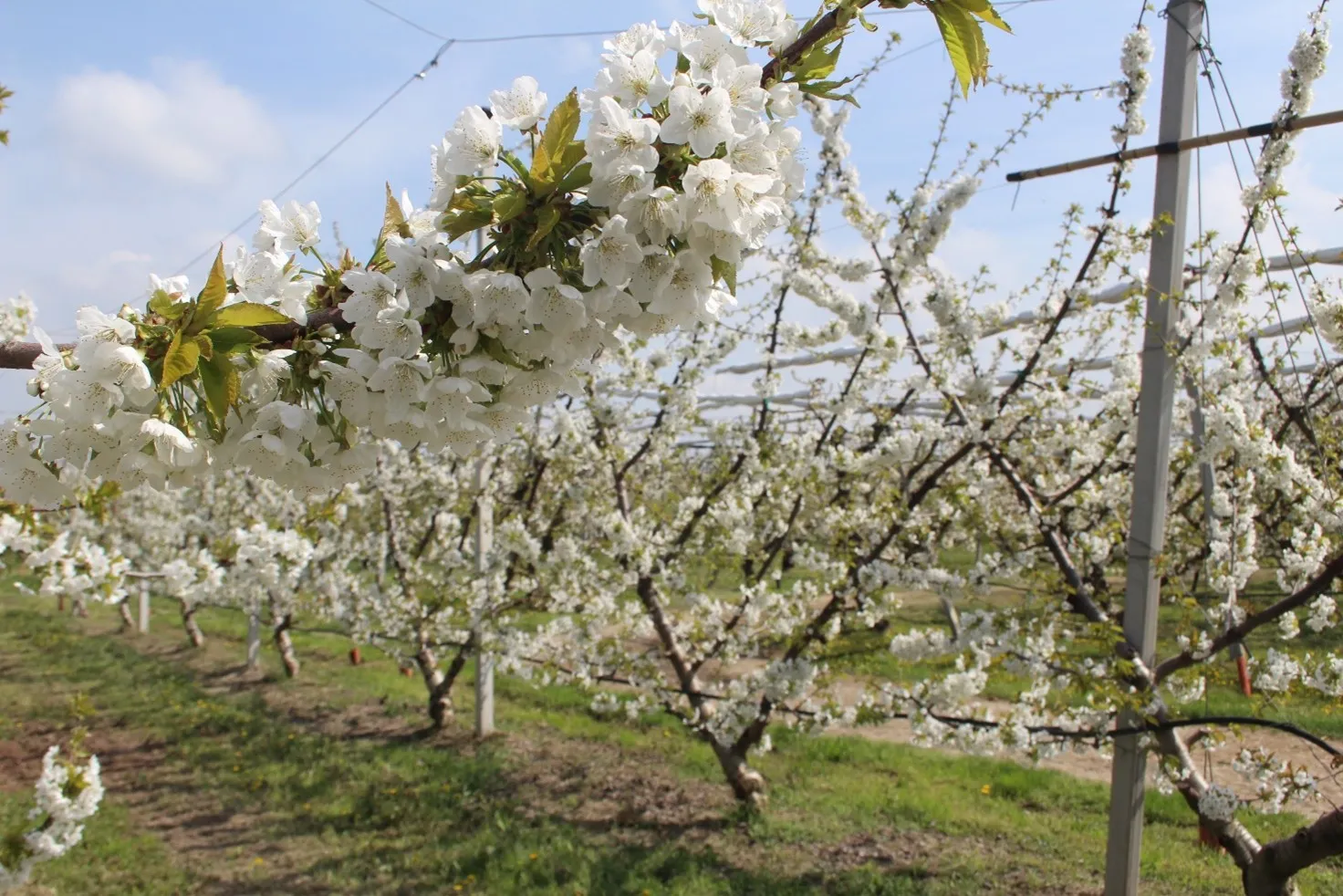The health of propagation materials starts with the breeders
05 Apr 2023
Some considerations on how to better qualify varietal innovation through breeding certification programs for a new sustainable and competitive cherry crop.
Cherry replanting can be challenging and presents a significant issue for farmers, primarily due to “replant disease.” This condition, characterized by reduced tree vigor and yield, is often attributed to plant-parasitic nematodes and other soil quality factors. A two-year study conducted in the United States on two sweet cherry cultivars, “Emperor Francis” and “Ulster,” analyzed six different soil treatment strategies to identify the best solutions for improving tree growth and managing nematodes.
Among the strategies evaluated, fumigation with a mixture of 1,3-dichloropropene and chloropicrin (Telone® C-35) proved particularly effective in enhancing early tree growth. This treatment significantly increased trunk cross-sectional area (TCSA) and canopy height in both cultivars. Fumigation also drastically reduced populations of the nematode Pratylenchus penetrans in the short term, creating optimal conditions for plant development.
However, the study revealed that fumigation efficacy declines over time, with the nematode reproduction factor (RF) rising again in the second year. This finding suggests that while fumigation is initially beneficial, it needs to be supplemented with other practices to ensure long-term control.
An alternative strategy is the use of fluopyram (Velum® Prime), a non-fumigant nematicide that demonstrated greater persistence in controlling Pratylenchus penetrans. Over the two years of the study, fluopyram consistently maintained a reproduction factor below one, indicating effective and lasting nematode population control.
Furthermore, trees treated with fluopyram exhibited growth comparable to those treated with Telone® C-35, making it a viable option for those seeking a less invasive but equally effective approach.

Organic amendments, such as Dairy Doo®, Seed Starter 101®, and straw mulch, yielded varying results. While their immediate impact on tree growth was less pronounced compared to chemical treatments, these amendments significantly improved soil quality by increasing populations of bacterivorous and fungivorous nematodes.
These organisms play a vital role in maintaining a balanced soil ecosystem, thereby promoting overall plant health. The combination of Dairy Doo®, Seed Starter 101®, and straw mulch also demonstrated some effectiveness in reducing Pratylenchus penetrans populations in the second year, suggesting that organic amendments can offer long-term benefits if used consistently.
Despite their advantages, organic amendments require repeated applications to maintain their effectiveness over time. Their action is influenced by factors such as soil temperature and moisture, which affect decomposition rates and the availability of bioactive nematicidal compounds. Additionally, their ability to support beneficial nematodes depends on the quality and quantity of organic matter applied.
In conclusion, sustainable cherry replanting management requires an integrated approach that combines chemical and organic treatments. Telone® C-35 (mixture of 1,3-dichloropropene and chloropicrin) is ideal for rapid and effective initial nematode control, while Velum® Prime (fluopyram) provides a more enduring solution.
Organic amendments, though requiring more effort in terms of application, contribute to improving soil health and promoting biodiversity. Integrating these strategies can ensure higher productivity while minimizing environmental impact. Further research should focus on optimizing treatment combinations to maximize both agronomic and ecological benefits.
Source: Yaghoubi, A., Yazdani, R., Cole, E., & Quintanilla, M. (2024). Pre-Plant Soil Treatments Influence Tree Performance and Nematode Dynamics in Replanted Cherry Orchards. Plant Disease, (ja). https://doi.org/10.1094/PDIS-06-24-1178-RE.
Images: SL Fruit Service
Andrea Giovannini
University of Bologna (IT)
05 Apr 2023
Some considerations on how to better qualify varietal innovation through breeding certification programs for a new sustainable and competitive cherry crop.
21 Jun 2024
The company uses a range of electrical equipment, including anti-freeze fans, irrigation pumps and vehicles, all powered by a 23 kW solar system and a 105 kWh battery, as well as by New Zealand's high-intensity renewable electricity grid.
04 Mar 2026
In cherry orchards of the Maule Region (Chile), circular paper chromatography is evaluated as a qualitative method to understand soil properties. Results highlight links with organic matter and agronomic management, supporting more sustainable production strategies.
04 Mar 2026
Chilean cherry exports to China are projected to rise by 14.3% by 2030, increasing market pressure and pushing prices down. Industry leaders and the SNA warn that up to 30,000 hectares may need to be removed to restore balance and protect long-term profitability.